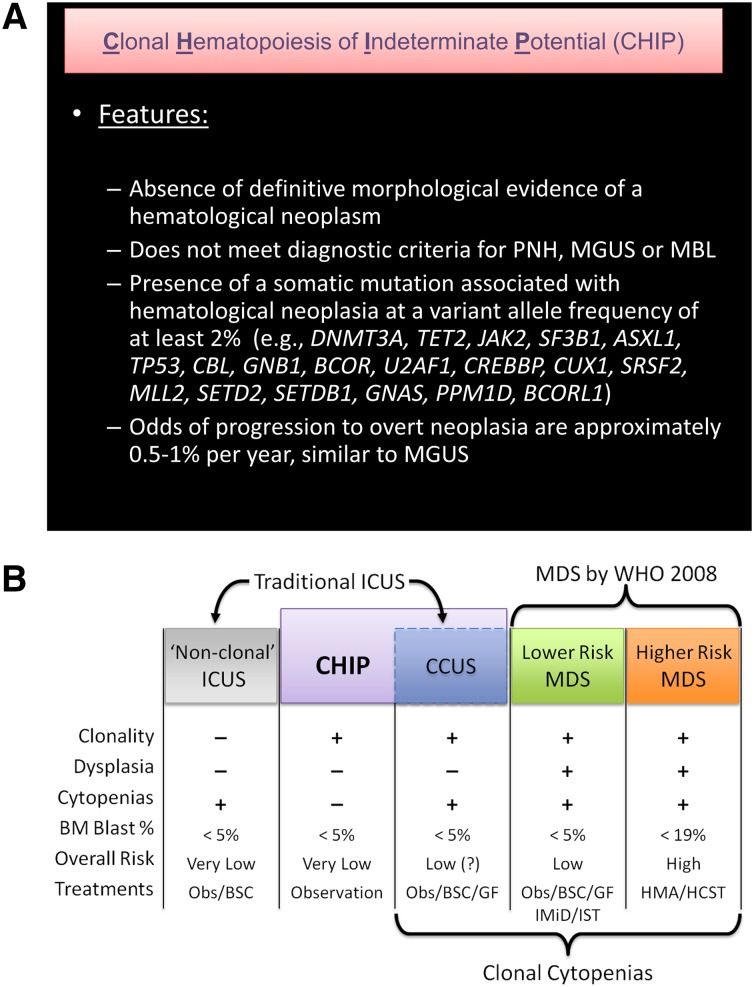Figure 2.
Definition of CHIP and its distinction from MDS and non-clonal cytopenic states. (A) A proposed definition of CHIP. A mutation that is commonly associated with clonal expansion of hematopoietic cells in older persons should be present, whereas criteria for other diagnoses should not be met. Evidence of mildly disordered erythropoiesis such as an elevated red cell distribution width or mean corpuscular volume can be compatible with CHIP rather than MDS, and occasional dysplastic cells might be seen, as is common in the general population with careful scrutiny of blood and marrow. CHIP is associated with an increased risk of all-cause mortality and subsequent diagnosis of hematological malignancy. The 19 genes most commonly mutated in healthy older adults in sequencing studies to date are listed. The roster of CHIP-associated mutations will likely change in the future, with some genes being removed and others being added. As a working definition, we propose a variant allele frequency of 2% in order to be considered CHIP (since extremely deep sequencing will detect mutations in almost every person), but this may need to be revised with further population analyses. PNH, paroxysmal nocturnal hemoglobinuria. (B) The spectrum of clonal hematopoiesis, ICUS, and MDS. ICUS is a broad category that includes a heterogeneous group of individuals, some of whom have benign (nonclonal) hematopoiesis. Other patients with ICUS may have CHIP, differing only from lower risk MDS by their lack of dysplasia and, currently, an undetermined disease risk. CHIP can also include patients with clonal hematopoiesis and nonmalignant causes of cytopenias (eg, immune cytopenias, liver disease, or nutritional deficiencies) that would not be considered to have ICUS because of the presence of a clone, but may have a distinct natural history. Obs, observation; BM, bone marrow; CCUS, clonal cytopenias of undetermined significance; HMA, hypomethylating agent (eg, azacitidine); GF, hematopoietic growth factor (eg, epoetin); IMiD, immunomodulatory drug (eg, lenalidomide); IST, immunosuppressive therapy; BSC, best supportive care; HSCT, hematopoietic stem cell transplant.

